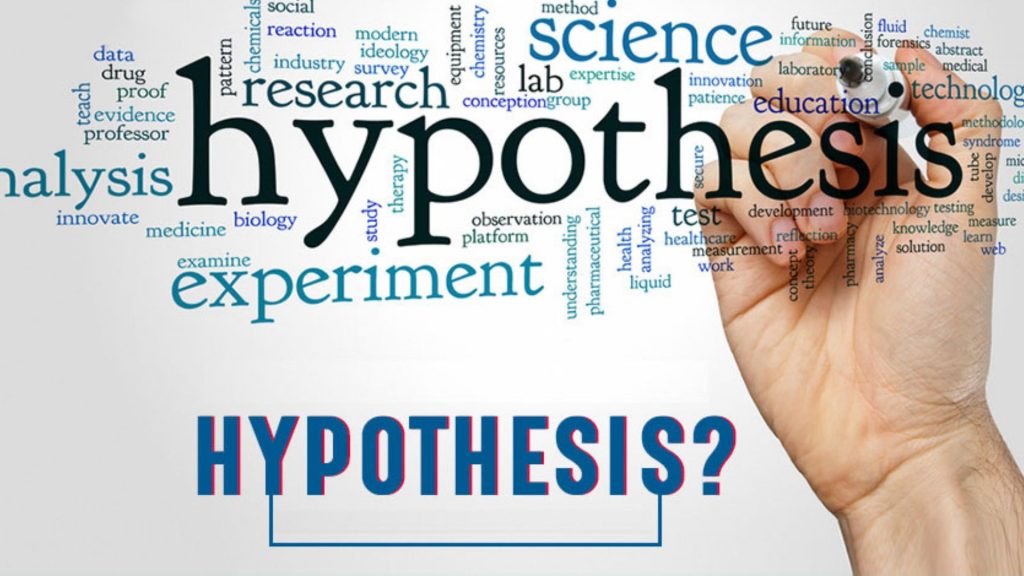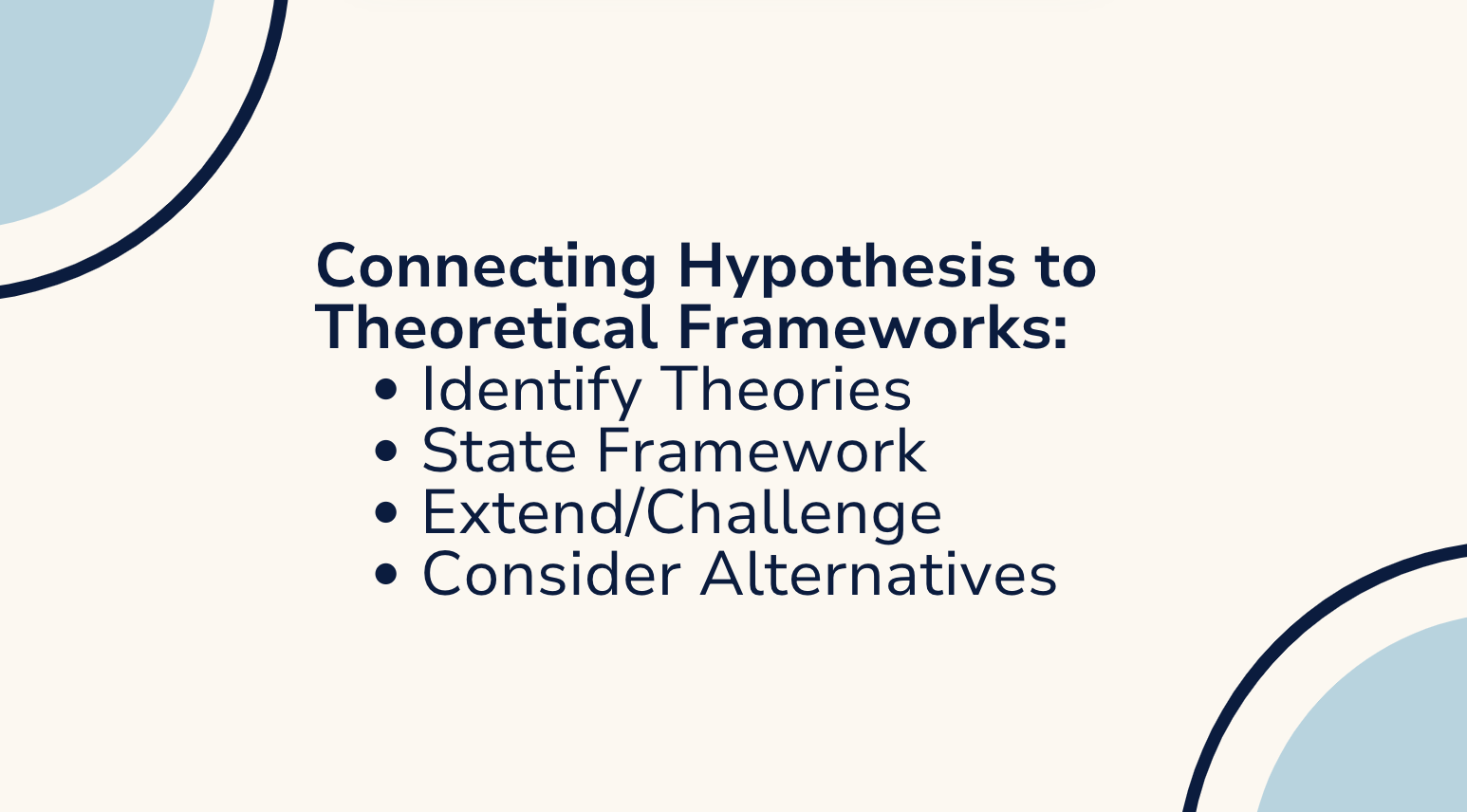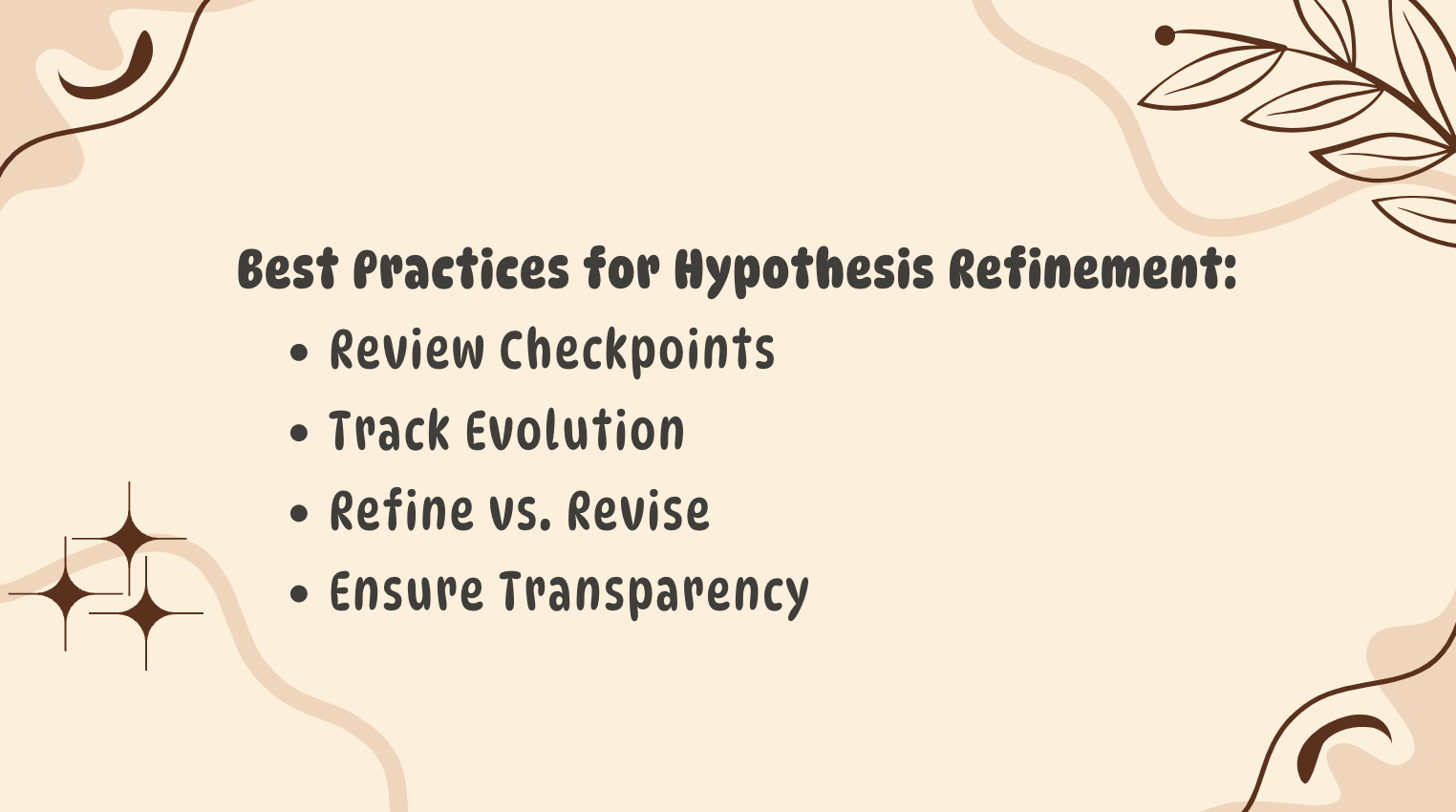
Have you ever spent weeks on research only to realize your hypothesis was flawed from the start? I've been there too. As someone who's worked with hundreds of researchers, I've seen how proper hypothesis development can make or break a study. The good news? Most hypothesis problems stem from a few common mistakes that are entirely avoidable.
In this guide, I'll walk you through the seven most damaging hypothesis development mistakes and show you practical ways to avoid them. Whether you're writing your first research paper or your fiftieth, these insights will strengthen your research foundation.
Understanding the Fundamentals of Hypothesis Development
Before diving into common mistakes, let's get clear on what hypothesis development actually involves.

A hypothesis is an educated prediction about the relationship between variables that can be tested through research. It's not just a random guess—it's a statement grounded in existing knowledge that proposes an explanation for an observed phenomenon.
Effective hypothesis development is critical because it:
Provides direction and focus for your research
Creates a testable framework for collecting evidence
Establishes boundaries for what you're investigating
Connects your work to existing literature and theories
As the renowned social scientist Earl Babbie puts it:
"A hypothesis is a specified testable expectation about empirical reality that follows from a more general proposition; more generally, it's an expectation about the nature of things derived from a theory."
Now, let's explore the mistakes that can derail even the most promising research projects.
Mistake #1: Developing Overly Vague Hypothesis Statements
Have you ever read a hypothesis and thought, "What exactly are they testing here?" Vague hypotheses create confusion and make proper testing nearly impossible.
Signs your hypothesis lacks specificity
Your hypothesis might be too vague if:
It contains ambiguous terms like "better," "improved," or "effective" without clear definitions
Multiple researchers interpret it differently
You're unsure how to measure the outcomes
It could apply to almost any situation
The consequences of vague hypothesis formulation
Vague hypotheses lead to unfocused research designs, questionable data collection, and difficulty drawing meaningful conclusions. Ultimately, they waste valuable research time and resources.
How to create precise, testable hypothesis statements
To craft precise hypotheses:
Clearly define all variables and terms
Specify the relationship you expect to find
Make sure it's testable with available methods
Include directionality when appropriate
How Ponder AI helps refine hypothesis clarity
Ponder's interactive knowledge mapping feature helps you visualize relationships between concepts, making it easier to spot vague areas in your hypothesis. By transforming complex papers into structured knowledge maps, you can quickly identify precise terminology and relationships that strengthen your hypothesis formulation.
Mistake #2: Ignoring Literature Review in Hypothesis Development
Creating hypotheses without thoroughly understanding existing research is like building a house without checking the foundation. You're setting yourself up for collapse.
Why background research is essential for hypothesis formation
Literature review helps you:
Identify gaps in current knowledge
Understand how variables have been previously defined
Build on established theories rather than reinventing the wheel
Anticipate potential challenges and limitations
Effective strategies for literature-informed hypothesis development
Strategy | Description | Benefits |
|---|---|---|
Systematic keyword search | Use structured search terms across multiple databases | Comprehensive coverage of relevant literature |
Citation tracing | Follow reference lists from key papers forward and backward | Identifies intellectual lineage and development |
Conceptual mapping | Create visual representations of how concepts relate | Reveals potential relationships worth investigating |
Gap analysis | Explicitly identify what's missing from current research | Helps position your hypothesis in the scholarly conversation |
How Ponder AI streamlines literature review for better hypotheses
Ponder's multi-document comparison feature allows you to quickly spot similarities and differences across papers, making literature review 10x faster. The AI, trained on over 200 million academic papers, helps identify research gaps and suggests connections between concepts that might inform your hypothesis development.
Mistake #3: Failing to Align Hypothesis Development with Research Questions
Your research questions and hypotheses should work together like dance partners—in perfect harmony. When they don't align, your research lacks coherence.
The critical relationship between research questions and hypotheses
Research questions define what you want to know, while hypotheses propose potential answers. They should be perfectly aligned, with hypotheses directly addressing the questions you've posed.
Signs of misalignment in your hypothesis development
Your hypothesis addresses only part of your research question
The hypothesis introduces variables not mentioned in your research questions
You can't trace a clear path from question to hypothesis to methodology
How Ponder AI maps relationships between research elements
Ponder's flexible knowledge organization allows you to create digital canvases where you can visually map the connections between your research questions, hypotheses, and supporting literature. This spatial thinking approach reveals misalignments that might otherwise go unnoticed in traditional linear note-taking systems.
Mistake #4: Overlooking the 3 Requirements of a Strong Hypothesis
Not all hypotheses are created equal. The strongest ones meet three key requirements that ensure they're scientifically valuable.
Understanding testability, falsifiability, and relevance
A strong hypothesis must be:
Testable: You can collect empirical evidence to evaluate it
Falsifiable: There's a possibility of proving it wrong
Relevant: It addresses a meaningful question in your field
A framework for evaluating hypothesis strength
Ask yourself these questions to evaluate your hypothesis:
Can I clearly define how I'll measure each variable?
What evidence would prove this hypothesis wrong?
Why does answering this question matter to my field or to society?
Does this hypothesis build logically from existing knowledge?
Ponder's deep research capabilities help evaluate hypotheses against these criteria by connecting your formulations with established research frameworks and methodologies.
Mistake #5: Developing Hypotheses Without Variable Clarity
Vague variables lead to vague results. Period.
How ambiguous variables undermine research validity
When variables aren't clearly defined, different researchers might measure them differently, making your results impossible to replicate. This undermines the entire scientific process, which depends on replicability.
Strategies for precise variable identification
Create operational definitions that specify exactly how each variable will be measured
Distinguish between conceptual definitions (what something is) and operational definitions (how you'll measure it)
Consider alternative measurements and justify your choices
Use established measures when possible
Ponder's thinking workspace helps researchers clarify variable definitions by aggregating how terms have been operationalized across multiple studies, saving hours of manual literature review.
Mistake #6: Creating Hypotheses That Aren't Grounded in Theory
Theoretical frameworks provide the context that makes your hypothesis meaningful rather than arbitrary.
Why theoretical foundations matter
Theories explain the "why" behind your expected relationships. Without theory, you might identify correlations but lack the framework to understand causation or meaning.
Connecting your hypothesis to existing theoretical frameworks
Identify the dominant theories in your research area
Explicitly state which theoretical framework guides your thinking
Explain how your hypothesis extends or challenges existing theory
Consider alternative theoretical perspectives
Ponder AI's knowledge mapping features help visualize theoretical frameworks and how your hypothesis connects to broader intellectual traditions, strengthening the foundation of your research.
Mistake #7: Resistance to Refining Hypotheses Throughout the Research Process
The strongest researchers see hypothesis development as an iterative process, not a one-and-done task.
Understanding hypothesis development as an iterative process
As you gather data, review more literature, or gain insights from preliminary results, you may need to refine your hypothesis. This isn't failure—it's good science.
Best practices for hypothesis refinement
Set specific checkpoints to review your hypothesis
Document your hypothesis evolution and justifications for changes
Distinguish between refinement (clarifying or focusing) and complete revision
Be transparent about refinements in your final reporting
Ponder's progressive learning flow supports this iterative process, allowing you to build frameworks and then dive deeper as your understanding evolves.
Transforming Your Hypothesis Development Process with Ponder AI
The hypothesis development challenges we've discussed can be significantly reduced with the right research tools. Ponder AI transforms how researchers process complex knowledge, making hypothesis development more efficient and effective.
Case study: Successful hypothesis development with Ponder
Dr. Sarah Chen, a social psychology researcher, used Ponder to develop hypotheses for her study on social media behavior. By uploading 15 key papers to the platform, she created interactive knowledge maps that revealed unexpected connections between variables studied across different papers. This allowed her to formulate a novel hypothesis about the relationship between interface design and user disclosure behaviors—a connection she might have missed using traditional research methods.
Conclusion: Mastering the Art of Hypothesis Development
Avoiding these seven common hypothesis development mistakes can dramatically improve your research quality:
Developing vague hypotheses
Ignoring literature review
Misaligning hypotheses with research questions
Overlooking the key requirements of hypotheses
Lacking variable clarity
Creating hypotheses without theoretical grounding
Resisting hypothesis refinement
By addressing these issues and leveraging tools like Ponder AI, you can build stronger research foundations that lead to more meaningful contributions to your field.
What hypothesis development challenges have you faced in your research? Have you found effective strategies to overcome them? I'd love to hear your experiences in the comments below.

